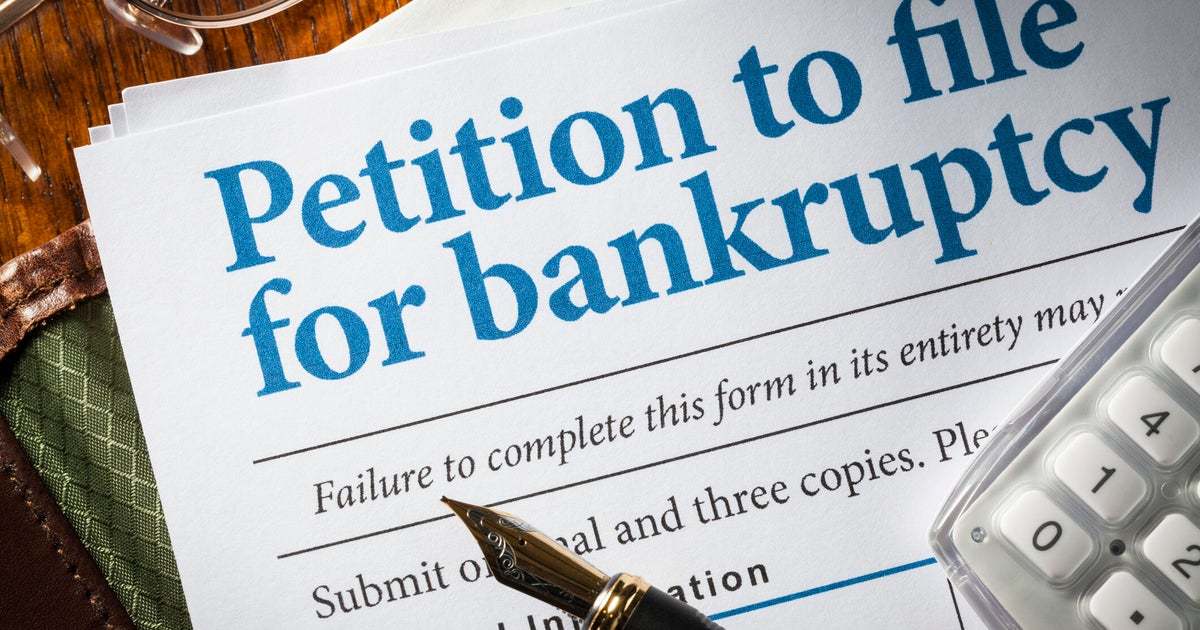-
-
by
News PRO
Right now, many of borrowers are facing some serious debt issues, including those who were once able to easily cover their monthly payments. Part of the issue is that, at over 22% on average, credit card rates are sitting near record highs, meaning the compound interest is racking up quickly for your average borrower. And, when you factor in the other economic hurdles, like sticky and growing inflation, which is driving up the costs of everything from groceries to housing, it’s easy to see why so many people are now struggling to meet their payment obligations. But if your debts have piled up and the collection calls are becoming unbearable, filing for bankruptcy might seem like the only way out. Doing so is a major financial decision, though, one that can have a serious impact on your finances both in the short and long term. That said, it’s also becoming a more common option for borrowers to consider. In recent months, personal bankruptcy inquiries have been climbing as household debt continues to soar, indicating just how desperate borrowers are for solutions. But while bankruptcy can provide a fresh start, it doesn’t happen overnight. The process can take a while depending on the type you file, your financial situation and other factors. So, if you’re wondering how long it might take to go from filing to discharge, it helps to understand the timeline.Find out how you can get help with your high-rate debt problems today.How long does it take to file for bankruptcy?The time it takes to file and complete a bankruptcy largely depends on whether you file Chapter 7 or Chapter 13, the two most common types for individuals. Here’s what the timelines look like for each option:Chapter 7 bankruptcy: Often called liquidation bankruptcy, Chapter 7 wipes out most unsecured debts, like credit card balances and personal loans, after selling nonexempt assets to repay creditors. From start to finish, a Chapter 7 bankruptcy case typically takes about three to six months to conclude. The process includes credit counseling, completing a petition and supporting documents and attending a meeting with your creditors. Once that’s done, qualifying debts are discharged, offering you relatively fast access to a clean slate.Chapter 13 bankruptcy: Also known as a wage earner’s plan, Chapter 13 allows you to keep your property while repaying some or all of your debts over time through a court-approved repayment plan. Because of that structure, Chapter 13 cases can take anywhere from three to five years to complete. The good news is, though, that you’re able to retain your home, car and other assets while making manageable monthly payments toward your debts.In addition to the average timelines outlined above, the filing process itself, which includes gathering financial documents, taking the mandatory credit counseling course and submitting your petition to the court, usually takes a few weeks. Delays can occur if your paperwork is incomplete, if creditors object or if the court has a heavy backlog, though. If you hire a bankruptcy attorney, that can also extend the timeline slightly, though it often saves time in the long run by avoiding mistakes that could lead to case dismissal.Explore your debt relief options and chat with an expert about the help available to you.How long does it take for a bankruptcy to fall off your credit report?Bankruptcy doesn’t disappear from your financial record when the bankruptcy process is complete, even once your debts are discharged. How long it stays on your credit report depends on the type of bankruptcy you file:Chapter 7 bankruptcy: This type of bankruptcy remains on your credit report for 10 years from the filing date.Chapter 13 bankruptcy: A Chapter 13 filing typically falls off after seven years, since it involves partial repayment to creditors.That said, your credit can start improving much sooner. Many filers see their scores begin to rebound within a year or two, especially if they practice good credit habits like paying bills on time, keeping credit utilization low and using secured credit cards to rebuild credit history.What are the faster and less damaging debt relief options to consider?Because bankruptcy can carry long-term financial consequences, it’s worth exploring alternatives before filing, especially if your situation isn’t dire yet. The following options may help you regain control faster, with less damage to your credit:Debt consolidation: When you consolidate your debt, you take out a lower-rate loan to pay off multiple debts at once, simplifying your payments and lowering your overall costs.Debt management: A credit counseling agency can negotiate with your creditors to try and reduce interest rates and help you create a single, affordable monthly payment plan, called a debt management plan, that is typically completed in a few years.Debt settlement: A debt relief company can negotiate with your creditors to try and settle your debts for less than you owe in return for a lump-sum payment on the account. These programs usually take 24 to 48 months to complete and can significantly reduce your balances.Work directly with creditors: Some lenders will agree to hardship or forbearance plans or temporary payment reductions if you’re upfront about your financial difficulties.The bottom lineBankruptcy can be a lifeline for those drowning in debt, but it’s not an instant fix. A Chapter 7 case may be resolved in a matter of months, while a Chapter 13 repayment plan could take several years to complete. And even after discharge, the effects linger on your credit report for up to a decade.Before filing, it makes sense to explore the alternatives that can provide quicker relief without the long-term credit damage. But whether you pursue bankruptcy or another form of debt relief, getting professional guidance can help you make the most informed and financially sound decision possible.
Share this:
- Click to share on Facebook (Opens in new window) Facebook
- Click to share on X (Opens in new window) X
- Click to share on Reddit (Opens in new window) Reddit
- Click to share on LinkedIn (Opens in new window) LinkedIn
- Click to share on Pinterest (Opens in new window) Pinterest
- Click to share on Tumblr (Opens in new window) Tumblr
Related
OUTLAW CHEMICAL FREE SOAPS AND NATURAL BODY PRODUCTS!

PPR MERCH HERE NOW! CLICK THE AD TO SHOP!!!


New Orleans Pelicans News
Pelicans Make a Statement in Australia | What Comes Next?

New Orleans Saints News
Saints Monday After: Defense Dominates Like the Dome Patrol

New Orleans Saints News
Victory at Last! Saints Beat Giants 26-14

New Orleans Pelicans News
Rockets Stun Pelicans in Wild 130-128 Birmingham Finish











